![Robert Ehrhardt]() “We came to work for you. Please stay home for us.” A recurring national headline, this plea from healthcare professionals reverberates across the country as the battle against the COVID-19 pandemic remains in full force. Among those courageously serving on the front lines are countless Southern Illinois University Edwardsville alumni.
“We came to work for you. Please stay home for us.” A recurring national headline, this plea from healthcare professionals reverberates across the country as the battle against the COVID-19 pandemic remains in full force. Among those courageously serving on the front lines are countless Southern Illinois University Edwardsville alumni.
The rapid spread of the novel Coronavirus has caused monumental challenges and daily changes across the public and private sector. Intertwined in COVID-19 responses are adaptability and communication. Front line workers are finding that true both at work and at home, as they adjust real-time for the safety of their patients, families and themselves.
From fast-paced hospital settings to crowded pharmacy lines and community checks, SIUE alumni are experiencing an array of tense scenarios requiring careful and compassionate service.
“Adapting to this new challenge has brought our teamwork and communication skills to a whole new level,” said Robert Ehrhardt, a registered nurse in the Emergency Department at DePaul Hospital in Bridgeton, Mo. Ehrhardt earned a bachelor’s in nursing from SIUE in 2018. “One of the most notable, and absolutely necessary, changes that occurred was an update to the visitor policy at SSM facilities. Currently, the policy is ‘no visitors unless the patient is a minor or a loved one is in critical condition.’
“Patients reporting COVID-19 symptoms are quickly intubated, meaning a tube is placed in their lungs and a machine takes over breathing for them, to give them the best chance of fighting off the infection.”
While he and his colleagues know the reality of what needs to be done, Ehrhardt says it’s still difficult to know patients cannot have their loved ones with them.
“It’s for the sake of their survival. But once they are intubated, they are under continuous sedation without a chance to talk to their loved ones,” he explained. “Families won’t get to see them unless they have already passed or there is no foreseeable chance of recovery.”
Among the changes and requirements in Ehrhardt’s medical setting: all staff are wearing personal protective equipment (PPE) and taking measures to safely reuse N-95 masks when possible, communication has increased, treatment methods have changed with people being treated and discharged from an outdoor medical tent, and a bio containment unit for highly infectious diseases was created within the emergency department.
“The unknown has been a huge challenge,” noted Ehrhardt’s nurse coordinator Samantha Jeananne. “Preparing for a virus with an unknown etiology, effecting an unknown amount of people, in an unknown way was not an easy task.”
Ehrhardt has also isolated himself from family and friends since the outbreak began. Other front line workers are taking extreme measures to sanitize themselves and their belongings before returning home to their loved ones.
![Ashley Dicks]() “My transition from work to home has changed drastically,” explained Ashley Dicks, PharmD, a pharmacist manager at Michelle’s Pharmacy in Gillespie. Dicks earned a bachelor’s in biological sciences/medical science and a doctor of pharmacy from SIUE in 2008 and 2012, respectively.
“My transition from work to home has changed drastically,” explained Ashley Dicks, PharmD, a pharmacist manager at Michelle’s Pharmacy in Gillespie. Dicks earned a bachelor’s in biological sciences/medical science and a doctor of pharmacy from SIUE in 2008 and 2012, respectively.
“I take off my gloves when I walk outside of work. I sanitize my hands and Clorox anything that I brought in the pharmacy with me,” said the mother of two. “When I get home, I wipe down the inside of the car. I change out of my work clothing in the garage, placing my shoes in a designated bin, and then head straight to the shower. This is my new normal.”
At Michelle’s Pharmacy, Dicks notes that major precautions have been implemented to ensure everyone’s safety, including a one-person limit in the store to lessen exposure.
“Our staff are wearing PPE, including gloves at all times and masks when in contact with any patients,” Dicks noted. “We are wiping down all surfaces and doors hourly with medical grade cleaners. We are also encouraging our patients to call for curbside pick-up or utilize our delivery service.”
Alumna Lindsey Douglas is a public health associate with the Centers for Disease Control (CDC). She completed a bachelor’s in public health in 2019 and is on a two-year fellowship assignment for the CDC. Douglas is in Kalispell, Montana at the Flathead City-County Health Department.
“My community health work has been postponed until further notice, and my focus is now solely on COVID-19 response in the Flathead community,” Douglas explained. “The county has opened its Emergency Operations Center, and cases are coming in rather quickly. So, everything is changing by the hour. That is how fast this virus is spreading. I am currently monitoring people with confirmed cases, as well as those they have been in close contact with. We monitor everyone daily for 14 days.”
Douglas calls patients and exposed individuals to check-in on them during their self-quarantine. The calls allow her to assess how they are feeling by asking question such as “What is your temperature? Do you have a cough? Any shortness of breath, chest pains or other symptoms?”
According to Douglas, the rapidity of protocol and guidance changes has been the biggest challenge.
“This work has definitely increased my flexibility and understanding of what it is like to be in the middle of a public health crisis, and how quickly you need to adapt in order to effectively and efficiently help your community,” she said.
The trio of front line workers underscores the importance of taking this pandemic seriously and staying home.
“This virus does not discriminate based on age or how healthy you are,” Douglas said. “It’s important not only to care about your health, but the health of others. It requires all hands-on-deck to flatten the curve and combat COVID-19.”
“Stay at home, use social distancing, wash your hands and show your support to the front line staff,” Ehrhardt added. “That’s not only the nurses and doctors, but food service staff, cleaning teams, therapists, technicians, respiratory therapists, and many others.”
“Thank you to all who are doing your part, whether staying home or serving on the front lines,” Dicks concluded. “We see you. We appreciate you. We will come out stronger as a nation. This too shall pass.”
Photos: SIUE School of Nursing alumnus Robert Ehrhardt is a registered nurse serving on the front lines of the COVID-19 pandemic in the Emergency Department at DePaul Hospital in Bridgeton, Mo.
SIUE School of Pharmacy alumna Ashley Dicks wears a mask at work while combating the COVID-19 pandemic.
![]()
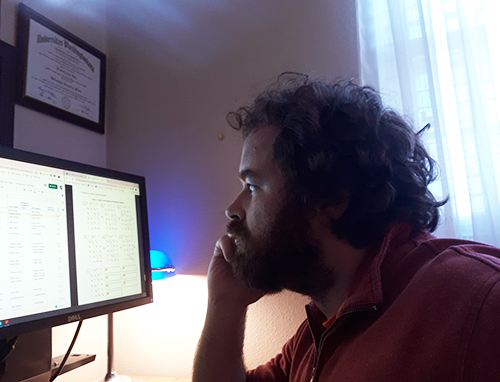 A slew of event cancellations caused by the ongoing COVID-19 pandemic have left children and adults alike disappointed for a variety of reasons. Thankfully, not all previously scheduled events have had to cancel altogether. Instead, many event organizers are creatively using technology to move online.
A slew of event cancellations caused by the ongoing COVID-19 pandemic have left children and adults alike disappointed for a variety of reasons. Thankfully, not all previously scheduled events have had to cancel altogether. Instead, many event organizers are creatively using technology to move online.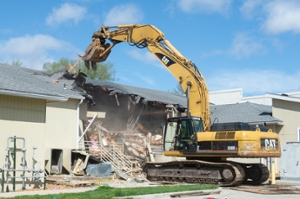 With a ceremonial “bite” from a trackhoe, the Southern Illinois University School of Dental Medicine (SDM) began construction Monday, April 13 on the site that will house its new Advanced Care Clinic (ACC) on the Alton campus.
With a ceremonial “bite” from a trackhoe, the Southern Illinois University School of Dental Medicine (SDM) began construction Monday, April 13 on the site that will house its new Advanced Care Clinic (ACC) on the Alton campus.  Southern Illinois University Edwardsville’s Office of Retention and Student Success is helping keep students on track to graduate by offering its Student Academic Success Sessions (SASS) online, which is one of several options to fulfill the Health Experience requirement for general education.
Southern Illinois University Edwardsville’s Office of Retention and Student Success is helping keep students on track to graduate by offering its Student Academic Success Sessions (SASS) online, which is one of several options to fulfill the Health Experience requirement for general education.  Rising recycling and waste management costs have the Madison County Planning and Development Department seeking resident input to determine how to effectively use county resources and ensure a better environmental future.
Rising recycling and waste management costs have the Madison County Planning and Development Department seeking resident input to determine how to effectively use county resources and ensure a better environmental future.  Ayonronmi gave an overview of the recycling availability and options in the county:
Ayonronmi gave an overview of the recycling availability and options in the county: 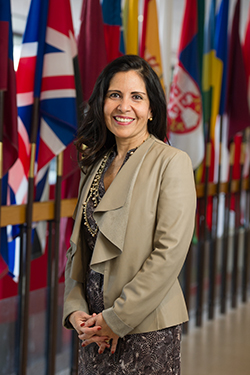 Amid the COVID-19 pandemic, international travel and the trade marketplace have been hugely impacted with in-person trade missions appearing “unlikely for the foreseeable future.”
Amid the COVID-19 pandemic, international travel and the trade marketplace have been hugely impacted with in-person trade missions appearing “unlikely for the foreseeable future.” As Stay-at-Home orders and social distancing recommendations are the new, temporary normal, connecting with friends, mentors and other acquaintances is challenging.
As Stay-at-Home orders and social distancing recommendations are the new, temporary normal, connecting with friends, mentors and other acquaintances is challenging.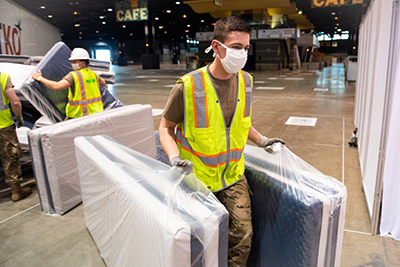 When called into action, members of the National Guard and Reserves can always be relied on to offer help and support in a variety of ways. Units across Illinois have been deployed to assist as essential workers combating the COVID-19 pandemic.
When called into action, members of the National Guard and Reserves can always be relied on to offer help and support in a variety of ways. Units across Illinois have been deployed to assist as essential workers combating the COVID-19 pandemic.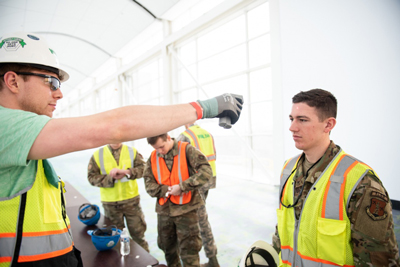 As part of Phase A, Maue assisted in building a section of the center to consist of 500 rooms. Currently, Phase B is in progress, with teams constructing an additional 1,700 rooms.
As part of Phase A, Maue assisted in building a section of the center to consist of 500 rooms. Currently, Phase B is in progress, with teams constructing an additional 1,700 rooms. Southern Illinois University Edwardsville is introducing an Intensive English Program (IEP) beginning the fall 2020 semester. IEP is a pre-university English language program designed for international students to complete in one or two semesters before starting their degree coursework.
Southern Illinois University Edwardsville is introducing an Intensive English Program (IEP) beginning the fall 2020 semester. IEP is a pre-university English language program designed for international students to complete in one or two semesters before starting their degree coursework. When Edwardsville Public Library Director Jill Schardt wanted to respond to a growing need of patrons and area residents, she turned to the Southern Illinois University Edwardsville Department of Social Work for help.
When Edwardsville Public Library Director Jill Schardt wanted to respond to a growing need of patrons and area residents, she turned to the Southern Illinois University Edwardsville Department of Social Work for help.  Their dark appeal, undisputable talents, blazing notoriety and even miscarriages of justice, have inspired the creativity of numerous writers and artists throughout the years. These “bad” men are the subject of the new book penned by Howard Rambsy II, PhD, professor in the Southern Illinois University Edwardsville Department of English Language and Literature.
Their dark appeal, undisputable talents, blazing notoriety and even miscarriages of justice, have inspired the creativity of numerous writers and artists throughout the years. These “bad” men are the subject of the new book penned by Howard Rambsy II, PhD, professor in the Southern Illinois University Edwardsville Department of English Language and Literature.  As Rambsy studied and taught African American literature, he became fascinated with the recurring patterns of bad men and vulnerable black boys in the work of various writers. The professor also received inspiration from the more than 500 first-year black male students that he has taught at SIUE since 2004.
As Rambsy studied and taught African American literature, he became fascinated with the recurring patterns of bad men and vulnerable black boys in the work of various writers. The professor also received inspiration from the more than 500 first-year black male students that he has taught at SIUE since 2004. 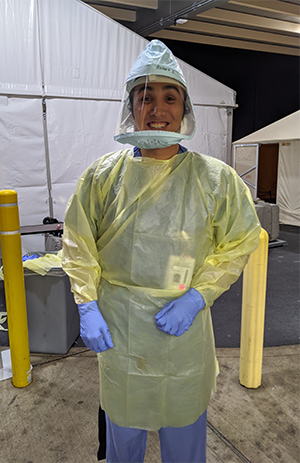 “We came to work for you. Please stay home for us.” A recurring national headline, this plea from healthcare professionals reverberates across the country as the battle against the COVID-19 pandemic remains in full force. Among those courageously serving on the front lines are countless Southern Illinois University Edwardsville alumni.
“We came to work for you. Please stay home for us.” A recurring national headline, this plea from healthcare professionals reverberates across the country as the battle against the COVID-19 pandemic remains in full force. Among those courageously serving on the front lines are countless Southern Illinois University Edwardsville alumni.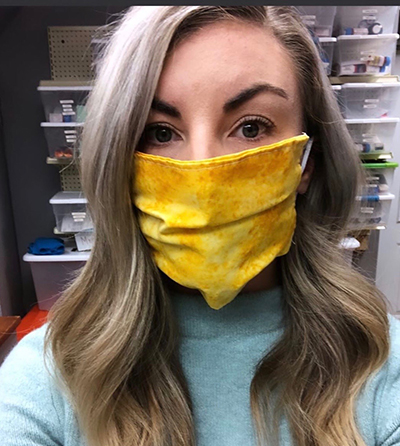 “My transition from work to home has changed drastically,” explained Ashley Dicks, PharmD, a pharmacist manager at Michelle’s Pharmacy in Gillespie. Dicks earned a bachelor’s in biological sciences/medical science and a doctor of pharmacy from SIUE in 2008 and 2012, respectively.
“My transition from work to home has changed drastically,” explained Ashley Dicks, PharmD, a pharmacist manager at Michelle’s Pharmacy in Gillespie. Dicks earned a bachelor’s in biological sciences/medical science and a doctor of pharmacy from SIUE in 2008 and 2012, respectively. Southern Illinois University Edwardsville’s Zhi-Qing (Z.Q.) Lin, PhD, professor in the College of Arts and Sciences’ (CAS) Departments of Biological Sciences and Environmental Sciences, has achieved the University’s highest academic rank of Distinguished Research Professor.
Southern Illinois University Edwardsville’s Zhi-Qing (Z.Q.) Lin, PhD, professor in the College of Arts and Sciences’ (CAS) Departments of Biological Sciences and Environmental Sciences, has achieved the University’s highest academic rank of Distinguished Research Professor. Kevin Leonard, PhD, has been selected as the new dean of the Southern Illinois University Edwardsville College of Arts and Sciences (CAS). Leonard will assume the role effective July 1, 2020 contingent upon SIU Board of Trustees approval.
Kevin Leonard, PhD, has been selected as the new dean of the Southern Illinois University Edwardsville College of Arts and Sciences (CAS). Leonard will assume the role effective July 1, 2020 contingent upon SIU Board of Trustees approval.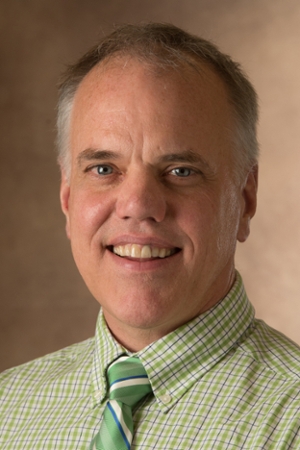 Onlineu.org has ranked the Southern Illinois University Edwardsville School of Nursing’s (SON) Master of Science in Nursing - Healthcare and Nursing Administration program 11th among its 2020 Most Affordable Colleges. See the entire list at
Onlineu.org has ranked the Southern Illinois University Edwardsville School of Nursing’s (SON) Master of Science in Nursing - Healthcare and Nursing Administration program 11th among its 2020 Most Affordable Colleges. See the entire list at  In 1970, the first Earth Day was organized by a college student. Fifty years later, in recognition of Earth Day on Wednesday, April 22, Southern Illinois University Edwardsville’s Successful Communities Collaborative (SSCC) is highlighting its Earth Edwardsville research project.
In 1970, the first Earth Day was organized by a college student. Fifty years later, in recognition of Earth Day on Wednesday, April 22, Southern Illinois University Edwardsville’s Successful Communities Collaborative (SSCC) is highlighting its Earth Edwardsville research project.  A sample of survey questions include:
A sample of survey questions include: Southern Illinois University Edwardsville’s Susanne DiSalvo, PhD, has been honored with the Graduate School’s 2020-21 Vaughnie Lindsay New Investigator Award for her outstanding research contributions and exemplary dedication to educating student researchers.
Southern Illinois University Edwardsville’s Susanne DiSalvo, PhD, has been honored with the Graduate School’s 2020-21 Vaughnie Lindsay New Investigator Award for her outstanding research contributions and exemplary dedication to educating student researchers.